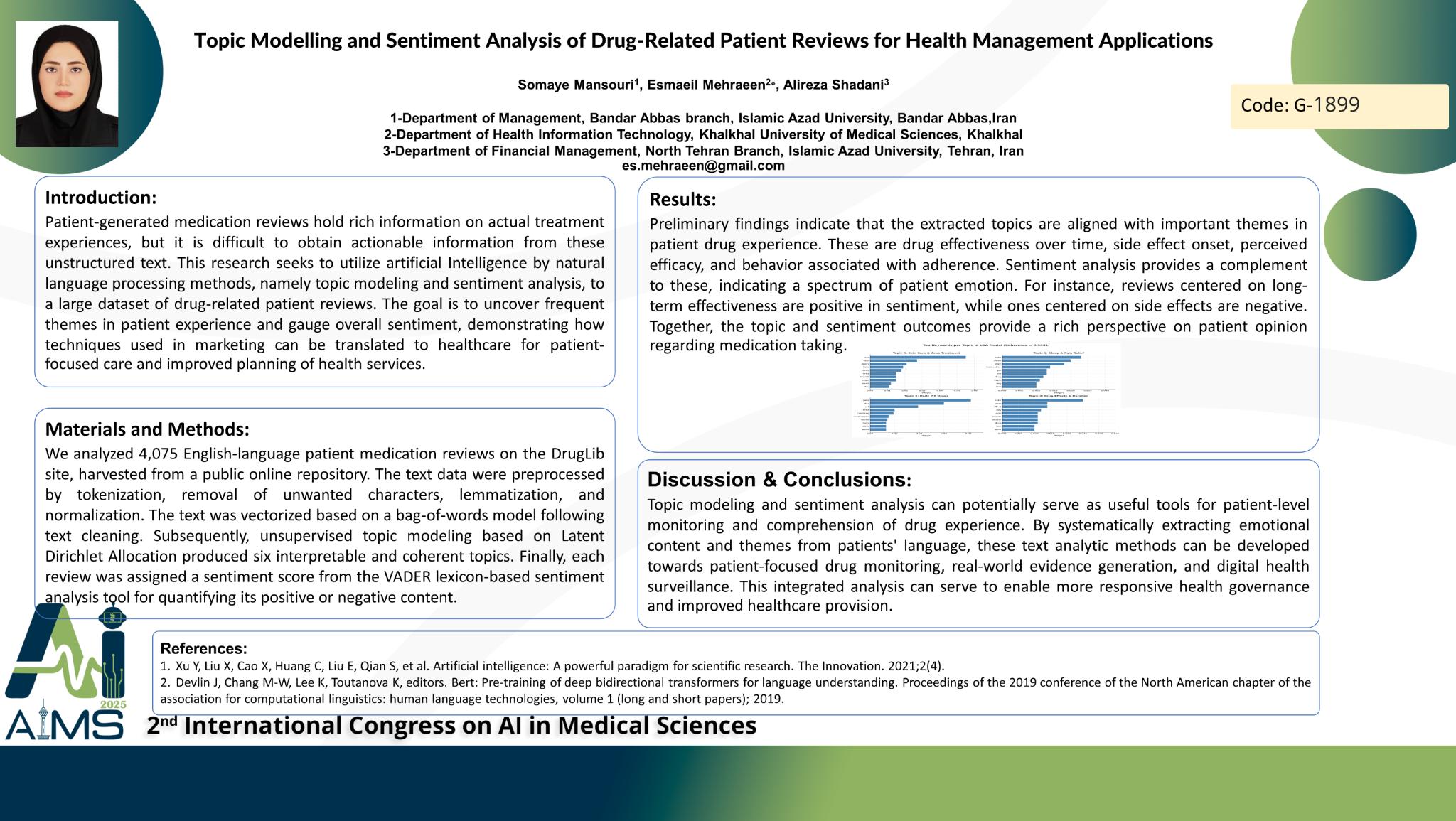مدلسازی موضوعی و تحلیل احساسات نظرات بیماران درباره داروها با هدف کاربرد در مدیریت سلامت
کد: G-1899
نویسندگان: Somaye Mansouri ℗, Esmaeil Mehraeen *, Alireza Shadani
زمان بندی: زمان بندی نشده!
برچسب: سیاست گذاری، قانون گذاری و مدیریت سلامت در حوزه هوش مصنوعی
دانلود: دانلود پوستر
خلاصه مقاله:
خلاصه مقاله
Background and Aims: Patient-generated medication reviews hold rich information on actual treatment experiences, but it is difficult to obtain actionable information from these unstructured text. This research seeks to utilize artificial Intelligence by natural language processing methods, namely topic modeling and sentiment analysis, to a large dataset of drug-related patient reviews. The goal is to uncover frequent themes in patient experience and gauge overall sentiment, demonstrating how techniques used in marketing can be translated to healthcare for patient-focused care and improved planning of health services. Method: We analyzed 4,075 English-language patient medication reviews on the DrugLib site, harvested from a public online repository. The text data were preprocessed by tokenization, removal of unwanted characters, lemmatization, and normalization. The text was vectorized based on a bag-of-words model following text cleaning. Subsequently, unsupervised topic modeling based on Latent Dirichlet Allocation produced six interpretable and coherent topics. Finally, each review was assigned a sentiment score from the VADER lexicon-based sentiment analysis tool for quantifying its positive or negative content. Results: Preliminary findings indicate that the extracted topics are aligned with important themes in patient drug experience. These are drug effectiveness over time, side effect onset, perceived efficacy, and behavior associated with adherence. Sentiment analysis provides a complement to these, indicating a spectrum of patient emotion. For instance, reviews centered on long-term effectiveness are positive in sentiment, while ones centered on side effects are negative. Together, the topic and sentiment outcomes provide a rich perspective on patient opinion regarding medication taking. Conclusion: Topic modeling and sentiment analysis can potentially serve as useful tools for patient-level monitoring and comprehension of drug experience. By systematically extracting emotional content and themes from patients' language, these text analytic methods can be developed towards patient-focused drug monitoring, real-world evidence generation, and digital health surveillance. This integrated analysis can serve to enable more responsive health governance and improved healthcare provision.
کلمات کلیدی
Artificial-Intelligence, Medicine, Sentiment-Analysis, Topic-Modeling, Health Management
